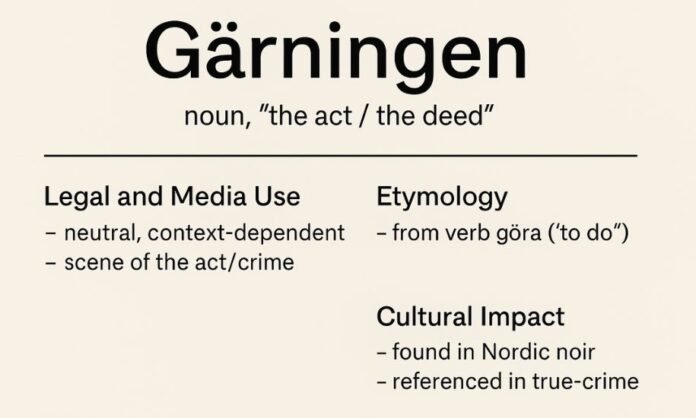In the modern digital era, every organization—from small startups to multinational corporations—relies heavily on technology and connected networks. However, this dependence comes with an increasing risk of cyberattacks, data breaches, and sophisticated hacking attempts. To safeguard sensitive information and maintain the integrity of IT infrastructures, businesses hire skilled professionals known as Cybersecurity Engineers.
This article covers everything you need to know about the Cybersecurity Engineer role, including Cybersecurity engineer salary, Cybersecurity engineer jobs, Cybersecurity engineer skills, the impact of social engineering in cybersecurity, and how to become a cybersecurity engineer.
What is a Cybersecurity Engineer?
A Cybersecurity Engineer is a highly trained IT professional responsible for designing, implementing, and managing secure systems that protect organizations from cyber threats.
While job titles vary—such as security engineer, information security analyst, or IT security architect—the core responsibility remains the same: safeguarding digital assets against attacks, unauthorized access, and system failures.
Cybersecurity engineers focus on:
-
Developing security protocols and infrastructure.
-
Performing penetration testing and vulnerability assessments.
-
Monitoring networks for suspicious activities.
-
Responding to incidents and breaches.
-
Ensuring compliance with industry regulations and standards.
Cybersecurity Engineer Jobs
The demand for Cybersecurity engineer jobs has grown rapidly due to the rise in cybercrime. According to global cybersecurity workforce studies, there are millions of unfilled positions worldwide, and this shortage is projected to persist for years.
Industries hiring cybersecurity engineers include:
-
Government and defense organizations.
-
Banking and financial institutions.
-
Healthcare providers.
-
E-commerce and retail companies.
-
Cloud service providers.
-
Technology and software development companies.
Cybersecurity engineer jobs range from entry-level security analyst positions to advanced roles like Chief Information Security Officer (CISO).
Cybersecurity Engineer Salary
The Cybersecurity engineer salary is among the highest in the IT sector due to the specialized skills required and the critical nature of the role.
In the United States:
-
Median salary: Around $124,000 – $125,000 per year.
-
Top earners: Can exceed $160,000 – $200,000 annually, especially in high-demand cities like San Francisco, New York, and Washington D.C.
-
Entry-level positions: Often start at $90,000 – $110,000 annually.
By industry:
-
Finance and banking: ~$140,000.
-
Cloud and internet services: ~$130,000–$150,000.
-
Government and defense: ~$120,000–$135,000.
What is the Median Salary of a Cybersecurity Engineer?
The median salary of a cybersecurity engineer sits at approximately $124,910 per year according to the U.S. Bureau of Labor Statistics. This figure can vary depending on:
-
Geographic location.
-
Industry sector.
-
Education and certifications.
-
Years of experience.
Cybersecurity Engineer Skills
To excel in this role, professionals need a combination of technical expertise and soft skills.
Technical Skills
-
Proficiency in programming languages like Python, Java, or C++.
-
Strong understanding of network security protocols and firewall configuration.
-
Experience in penetration testing and vulnerability scanning tools.
-
Knowledge of encryption methods and data protection techniques.
-
Familiarity with cloud security and compliance frameworks.
Soft Skills
-
Problem-solving and analytical thinking.
-
Strong communication and teamwork abilities.
-
Project management and organizational skills.
-
Continuous learning and adaptability.
Social Engineering in Cybersecurity
While many attacks target systems, one of the most dangerous threats is social engineering in cybersecurity. Social engineering manipulates human behavior to trick individuals into revealing confidential information or granting unauthorized access.
Common techniques include:
-
Phishing: Fraudulent emails designed to steal credentials.
-
Vishing: Voice phishing using phone calls.
-
Pretexting: Fabricated scenarios to obtain private data.
-
Impersonation: Pretending to be a trusted colleague or authority.
Cybersecurity engineers combat these threats by:
-
Conducting security awareness training.
-
Implementing multi-factor authentication.
-
Creating strict verification protocols for sensitive actions.
How to Become a Cybersecurity Engineer
Becoming a Cybersecurity Engineer involves a mix of education, certifications, and hands-on experience.
Step 1: Educational Background
-
Bachelor’s degree in Computer Science, Information Security, or a related field.
-
Some employers prefer candidates with a Master’s degree for senior roles.
Step 2: Certifications
Earning certifications enhances credibility and career opportunities:
-
CISSP – Certified Information Systems Security Professional.
-
CEH – Certified Ethical Hacker.
-
CompTIA Security+ – Foundational security certification.
-
OSCP – Offensive Security Certified Professional.
Step 3: Gain Experience
-
Start as an IT support technician or security analyst.
-
Participate in cybersecurity bootcamps and hackathons.
-
Contribute to bug bounty programs to practice ethical hacking.
Step 4: Specialize
-
Cloud security.
-
Network defense.
-
Incident response and digital forensics.
Future of Cybersecurity Engineer Jobs
As cyber threats grow more advanced, the role of the cybersecurity engineer will become even more crucial.
Emerging technologies such as AI-driven attacks, IoT vulnerabilities, and cloud exploitation are creating new challenges. This means cybersecurity engineers will remain among the most in-demand IT professionals for the foreseeable future.
Conclusion
A Cybersecurity Engineer plays a pivotal role in defending organizations against cyber threats, ensuring the security and integrity of digital systems. With attractive salaries, a strong job market, and opportunities for specialization, this career path offers both financial rewards and job satisfaction.
From understanding social engineering in cybersecurity to mastering cybersecurity engineer skills, professionals in this field are the digital guardians of the modern world.
If you’re looking for a career that combines technology, problem-solving, and constant learning, becoming a Cybersecurity Engineer could be your ideal path.
For more technology-related insights and in-depth guides, visit Technologies Era.


